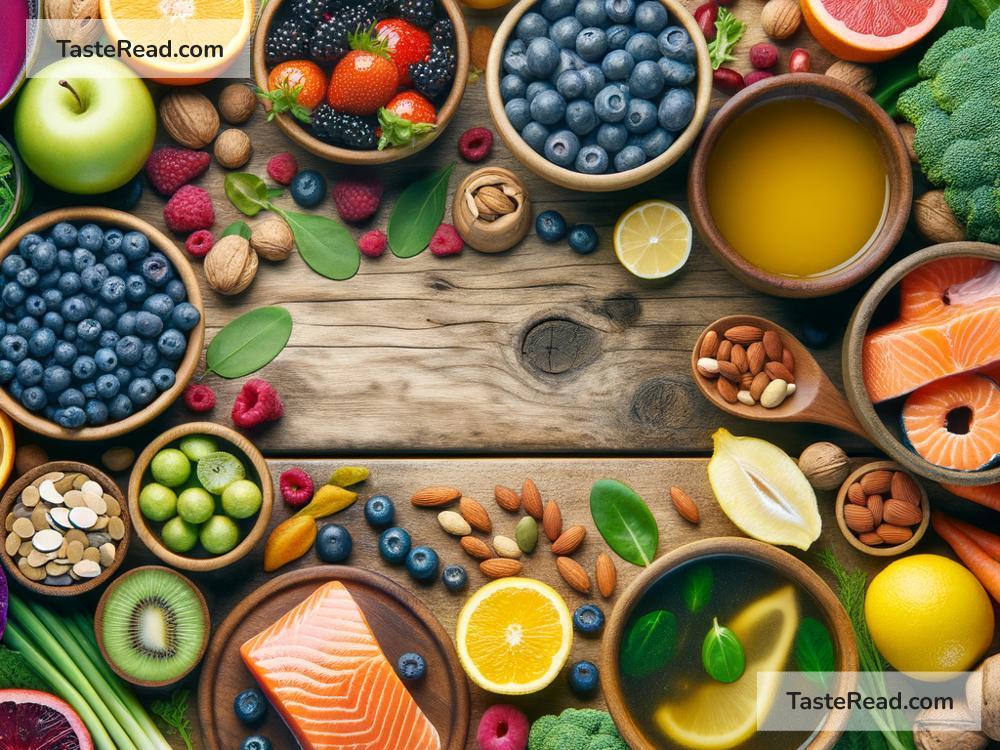Foods That Support Healthy Connective Tissue
Connective tissue is an essential part of your body. It provides structure, support, and protection to your organs, joints, and muscles. Examples of connective tissues include bones, tendons, cartilage, ligaments, and even the skin. To keep these tissues strong and healthy, you need the right nutrients from your diet. Fortunately, several foods can help you maintain healthy connective tissue, and they’re easy to incorporate into your daily routine.
Here’s a simple guide to the best foods for supporting your connective tissue and why they’re important.
What Connective Tissue Needs to Stay Healthy
Connective tissues rely on various nutrients to stay strong, flexible, and functional. Below are some key components your diet should include:
-
Collagen: This protein forms the foundation of connective tissues like skin, cartilage, and tendons. Boosting collagen can improve elasticity and regeneration.
-
Vitamin C: Helps the body produce collagen and protects tissues from damage caused by free radicals.
-
Protein: Essential for tissue repair and growth, since proteins are the building blocks of collagen and elastin.
-
Antioxidants: Reduce inflammation and prevent damage to connective tissue from oxidative stress.
-
Omega-3 Fatty Acids: These healthy fats reduce inflammation and promote joint health.
-
Minerals like Zinc and Copper: Support collagen production and overall tissue strength.
Best Foods for Healthy Connective Tissue
Here are the top foods you should include in your diet:
1. Bone Broth
Bone broth is rich in collagen, gelatin, and amino acids, which are essential for connective tissue health. Collagen from bone broth helps support strong tendons, ligaments, and skin elasticity. It’s also easy to digest and a great way to promote tissue repair.
2. Citrus Fruits
Oranges, lemons, grapefruits, and other citrus fruits are high in vitamin C, which is necessary for collagen production. Vitamin C is a powerful antioxidant that protects connective tissues from damage. Eating a daily serving of citrus fruits can give your skin and joints a boost.
3. Leafy Green Vegetables
Spinach, kale, and Swiss chard are packed with antioxidants that fight free radicals and reduce inflammation. They also contain magnesium, which helps support muscle and joint health. Adding greens to salads, smoothies, or soups is an easy way to promote healthy connective tissue.
4. Fatty Fish
Salmon, sardines, and mackerel are rich in omega-3 fatty acids, which reduce inflammation and support joint health. Omega-3s improve overall flexibility and prevent the breakdown of cartilage in joints. Aim to eat fish two to three times a week for maximum benefits.
5. Eggs
Eggs are an excellent source of protein and contain sulfur, which is important for collagen production. Sulfur plays a role in maintaining healthy skin, nails, and joints, making eggs a great addition to your breakfast or lunch.
6. Beans and Lentils
These plant-based proteins provide amino acids that are essential for collagen production. Beans and lentils also contain zinc, a mineral that supports the development and maintenance of connective tissues. They’re versatile and can be included in soups, salads, or stews.
7. Nuts and Seeds
Nuts like almonds, walnuts, and seeds like chia and flax are packed with omega-3 fatty acids, vitamin E, and zinc. These nutrients help repair connective tissues, reduce inflammation, and protect skin and joints. They make a great snack or topping for yogurt and oatmeal.
8. Garlic
Garlic contains sulfur compounds and taurine, which help rebuild damaged connective tissue and increase collagen production. Its anti-inflammatory properties are also beneficial for joint health.
9. Berries
Strawberries, blueberries, and raspberries are loaded with antioxidants and vitamin C. These fruits help fight oxidative stress, boost collagen production, and improve skin elasticity. Snack on them or toss them into a smoothie for a healthy treat.
10. Pumpkin Seeds
Pumpkin seeds are rich in zinc and magnesium, which are crucial for collagen synthesis and tissue repair. You can sprinkle them over salads, add them to trail mix, or enjoy them roasted as a snack.
11. Whole Grains
Whole grains like oats, quinoa, and brown rice are high in magnesium, a mineral that supports muscle and connective tissue health. They also provide fiber to keep inflammation in check.
Foods to Avoid
To promote healthy connective tissue, try to limit the following:
- Processed Foods: These can contribute to inflammation, which weakens connective tissue.
- Sugary Foods: Excess sugar can damage collagen and reduce skin elasticity.
- Trans Fats: Found in fried and packaged foods, trans fats promote inflammation, which harms connective tissues.
Tips for a Tissue-Healthy Diet
Incorporating these foods into your diet is easy with a little planning. Here are some tips:
- Start your day with eggs, spinach, and a side of fruit for a nutrient-packed breakfast.
- Snack on nuts or berries for antioxidants and vitamins.
- Make bone broth-based soups or use it as a base for cooking grains.
- Substitute fatty fish for other proteins a few times a week to get your omega-3s.
Bottom Line
Healthy connective tissue is essential for maintaining your body’s strength, flexibility, and appearance. A diet rich in collagen-boosting foods, antioxidants, and healthy fats can go a long way in keeping your skin glowing, joints pain-free, and muscles strong. By incorporating nutrient-dense foods like bone broth, citrus fruits, leafy greens, fatty fish, and nuts, you’re investing in your overall wellness.
Eating well doesn’t have to be complicated—just focus on foods that nourish your body from the inside out. Over time, your connective tissue will thank you for making these beneficial choices!
By following dietary habits that prioritize connective tissue health, you’ll not only feel better but also lay the groundwork for a more active and vibrant lifestyle.


